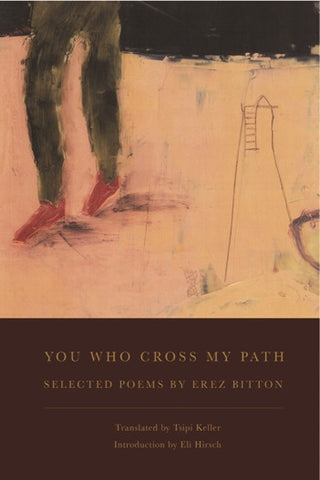
About This Title
Winner of the 2015 Israel Prize in Literature
Bilingual Edition | Translated from the Hebrew by Tsipi Keller
This first U.S. publication of Erez Bitton, one of Israel’s most celebrated poets, recalls the fate of Moroccan Jewish culture with poems both evocative and pure. Considered the founding father of Mizrahi Israeli poetry, a major tradition in the history of Hebrew poetry, Bitton’s bilingual collection dramatically expands the scope of biographical experience and memory, ultimately resurrecting a vanishing world and culture.
Praise for You Who Cross My Path
“Erez Bitton takes in the world through uniquely sharp senses, and all that his exquisite senses absorb he transmits to us in a clear and precise language like a fine violin whose function is not to glorify the player but the music.”―Dahlia Ravikovitch
“One cannot overstate the importance of Erez Bitton’s poetry. At least one of the reasons for this is self-evident: Bitton is the dominant figure in the creation and development of a new and significant tradition in the history of Hebrew poetry—the tradition of Israeli Mizrahi poetry. Many consider him the founding father of this tradition, which dramatically expanded the scope of the biographical experience and cultural memory and became a vital part in the formation of contemporary Hebrew poetry during the last few decades. . . . One is hard-pressed to name another Israeli poet who can claim such an achievement.”―Eli Hirsch
“It is near impossible to list the number of poets influenced by the poetry of Erez Bitton.”―Mois Ben Harash
“Erez Bitton is among the pioneers who have introduced the issue of identity in Hebrew poetry. His poetic language draws from the Hebrew of the city, the Hebrew of the outskirts, the Hebrew of the Bible and the Sources, as well as from the liturgical poetry of North Africa; he has also pioneered the inclusion of Jewish-Moroccan Arabic in his poems, right alongside the Hebrew. In his work, the experience of emigration and the clash of cultures attain both personal and universal dimensions, and his poems about blindness shed a light on intimate as well as social landscapes. He is the first to have given a rich and moving poetic expression to the ‘other’ and his culture.”―The Yehuda Amichai Poetry Prize
“[Bitton’s] poetry is not a subjective one, trapped in the private mythology of its creator. One gets the sense that behind each poem there are people, lives, pain and suffering that hold up the poem and endow it with depth and weight far greater than the weight of the poem as a poem.”―Amos Levitan
“Bitton’s poetry may be defined in several ways, some of which, per force, appear contradictory: he is a great rebel within the tradition of contemporary Hebrew poetry, and he is also someone who has gone back to earlier traditions, precisely those that contemporary Hebrew poetry rebelled against. He is the founding father of a new poetic tradition, and is also the inheritor and practitioner of existing traditions. . . . He rebuilds the continuum of memory through family stories and the figures of his parents as an alternative to the dominant history that rejected them.”―Elmog Behar
Publication Date: November 10, 2015
ISBN: 978-1938160875
© BOA Editions, Ltd. 2015

